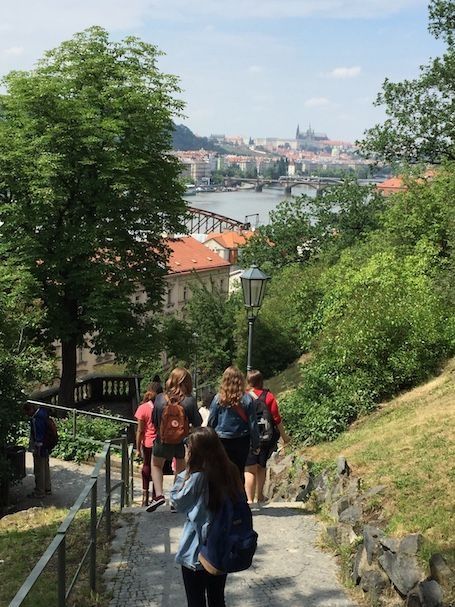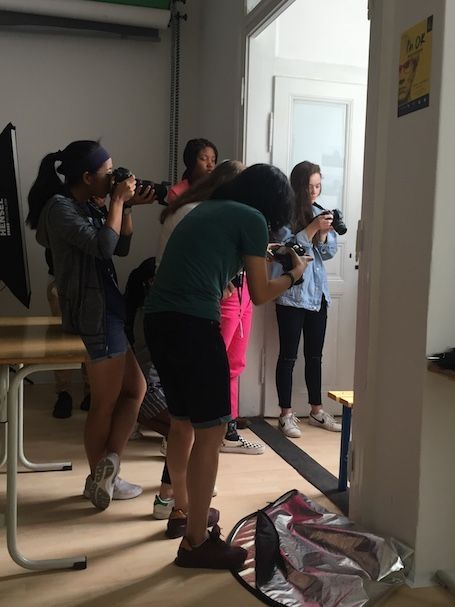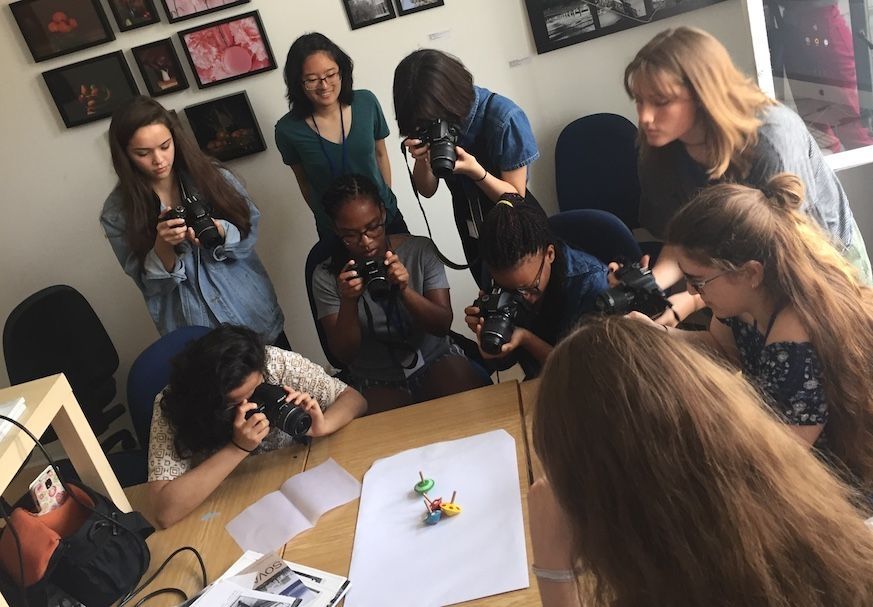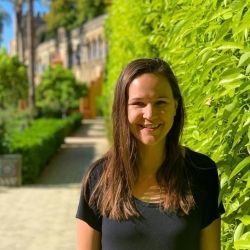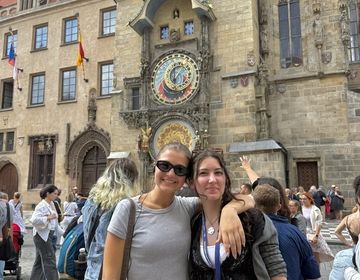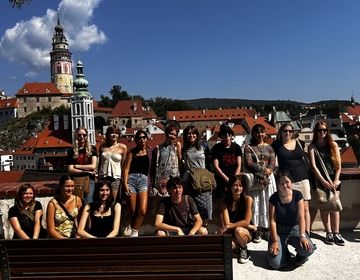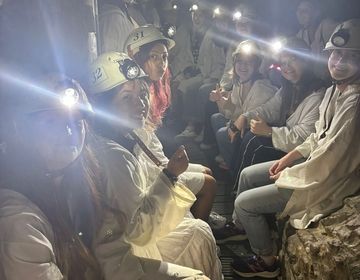Ten Czech Tidbits
Our second full day in Prague was full of learning (as study abroad should be)! Students started the day with photography class at the Art and Design Institute. There was something for every level as their instructor David gave a run-down of the technical aspects of the camera, explained various ways to use and manipulate light, and gave interspersed guidance and artistic freedom while students took portraits and played with the light.
The afternoon was packed with lunch, then a quick Czech lesson in which students learned basic pronunciation and practiced phrases such as "I would like to order..." and "my name is..." After the class, we were back out and moving again for a guided walking tour of the city! The tour was jam-packed with interesting facts - here are a few of our favorites.
1. The Czech Republic overcame communism very recently, in 1989.
2. The Czech revolution in 1989 was called the velvet revolution.
It is referred to this way because it was so smooth - no one died. It began when students of Charles University began to protest in the streets and were beaten back by police. After students were clubbed, millions of people in Prague came out in the streets, many went on strike, and the communist party stepped down soon after.
3. Many houses in Prague have "house signs" above the door because when they were first built, there were no street numbers!
The signs corresponded to the livelihood of the inhabitants (like the shoemaker's house below!).
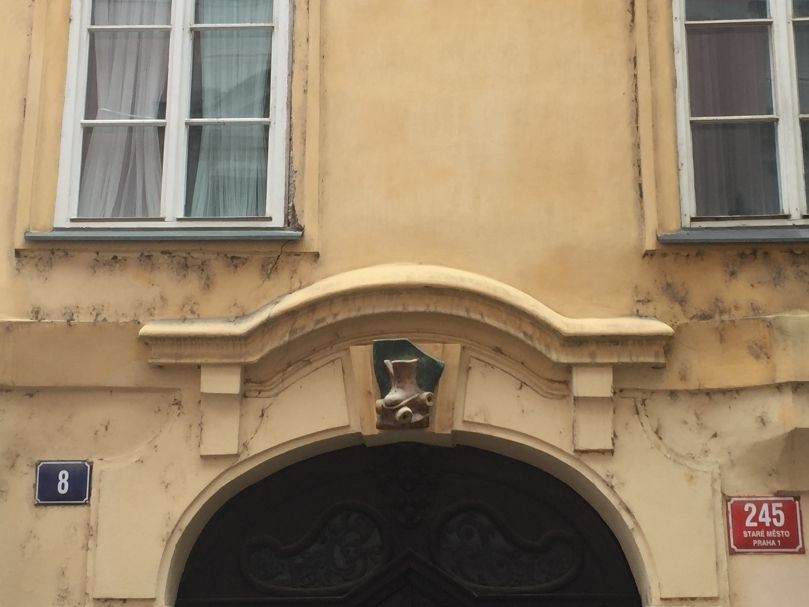
4. Czechs invented a couple of words we use often in America today, such as robot and dollar.
"Robot" came to be when a Czech author was writing a science fiction novel. The word comes from the latin word meaning "slave laborer."
5. Sir Nicholas Winton saved 669 Czech children through a program he ran out of the Grand Hotel Europa.
Czech out (had to do it, just once) the BBC video in which he meets some of those children years later.
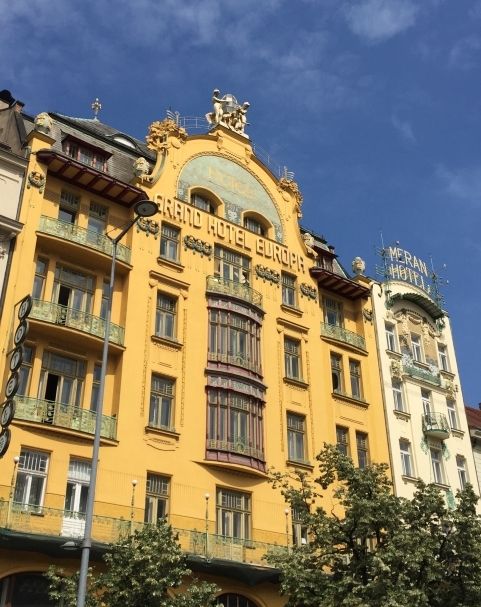
6. The iconic Prague castle dates all the way back to the ninth century.
7. Various churches in Prague are unfinished due to religious wars in the 1400s.
8. The Czech Republic has one of the highest numbers of libraries per capita!
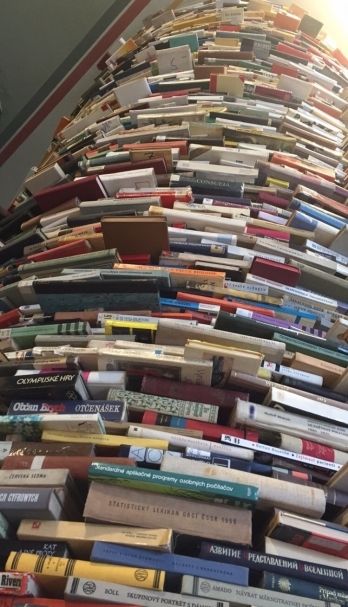
9. The Czech Republic is about the size of South Carolina.
10. There are bizarre sculptures throughout the city, thanks to David Cerny.
Cerny's work includes a large statue of King Wenceslas riding a horse upside down, the figure of Sigmund Freud hovering by one arm above the city as if about to fall to his death, and Kafka's gigantic and disjointed rotating head. Some call Cerny a troublemaker, but it is difficult to imagine Prague being quite so interesting without his work.
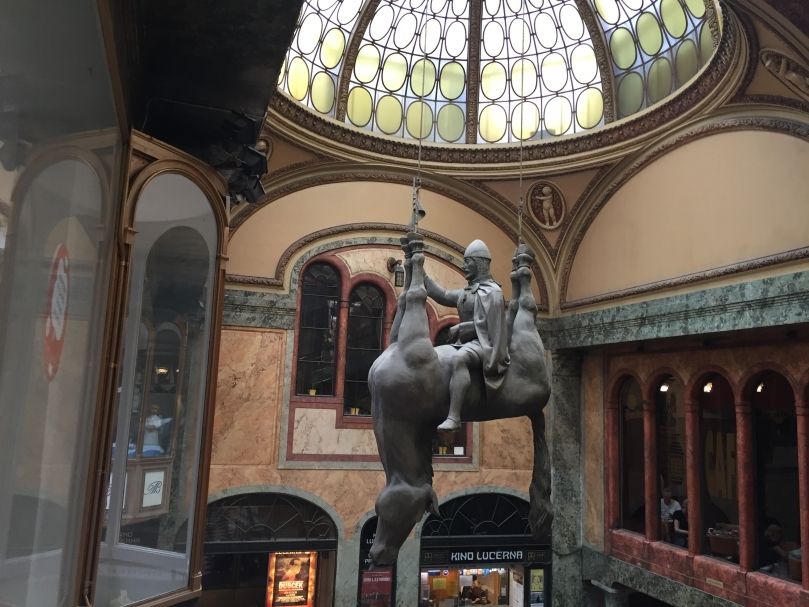
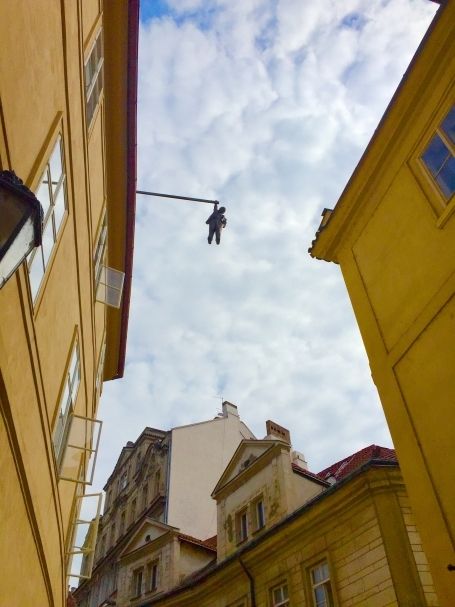
The group is thrilled to continue learning about Prague and take more wonderful photos of the city!
Related Posts
From Lessons to Landmarks: Our First Steps in Prague
In their first few days abroad, our HSSA Prague students stepped into the heart of the city, where cobblestone streets lead not just to famous landmarks, but to their first... keep reading
Český Krumlov Excursion
The weekend journey to Český Krumlov, a town often referred to as the "Pearl of Bohemia," began on Friday afternoon. The students left Prague filled with anticipation for what lay... keep reading
Kutná Hora: Week 1 Weekend Trip
Saturday morning began with a 9:00 AM departure from Prague, with the students buzzing with excitement for their adventure to Kutná Hora, a town steeped in rich history and famed... keep reading
